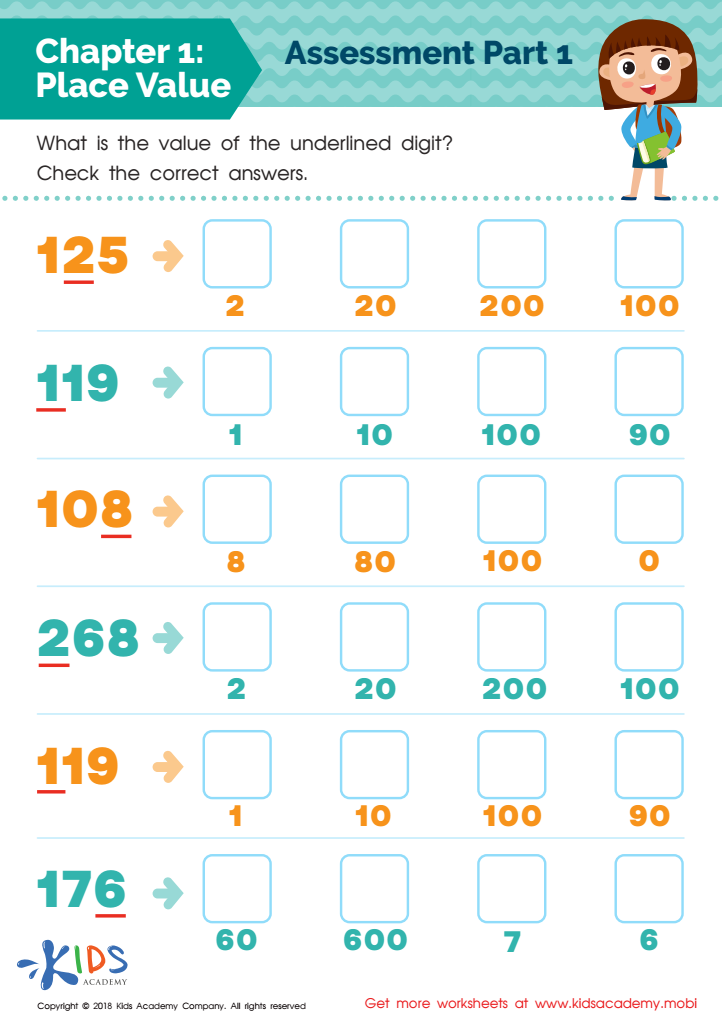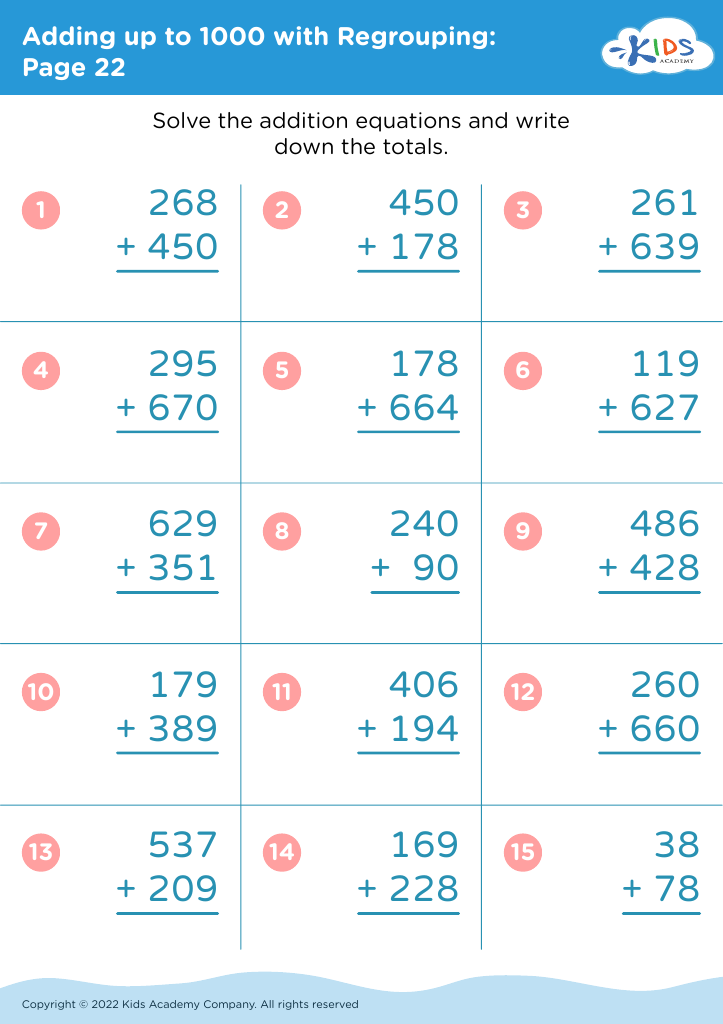Identify numbers Worksheets for Ages 3-9
3 filtered results
-
From - To
Discover our engaging "Identify Numbers Worksheets for Ages 3-9" crafted to make learning fun and effective. Kids Academy offers a variety of age-appropriate worksheets designed to enhance number recognition, counting skills, and numerical understanding. Tailored for young learners, these activities feature colorful illustrations and interactive tasks that encourage kids to identify and write numbers confidently. Perfect for both classroom and at-home learning, our worksheets support children in developing essential foundational math skills in an enjoyable way. Start your child's numerical journey today with Kids Academy and watch their confidence soar as they conquer numbers!


Place Value: Chapter 1 Worksheet
Identifying numbers is a foundational math skill that sets the stage for a child's future academic success. For ages 3-9, learning to recognize and understand numbers plays a critical role in cognitive development and everyday functioning. During these early years, children's brains are highly capable of absorbing new information, making it an ideal time for numeracy education.
Firstly, recognizing numbers builds a child's confidence in their ability to interact with their environment. Basic tasks like counting objects, telling time, and even understanding temperatures require number comprehension. As children become familiar with numbers, they develop problem-solving skills and logical thinking that are essential for tackling more complex mathematical concepts in higher grades.
Moreover, early familiarity with numbers can ease the transition into formal schooling, where math forms a core part of the curriculum. Kids who are adept at numbers are more prepared to understand addition, subtraction, and other arithmetic functions, giving them a head start.
Parents and teachers play a crucial role in nurturing these skills through engaging activities and real-life applications. By emphasizing the importance of number recognition in play, daily routines, and academic work, they can foster an enthusiasm for learning and build a strong, positive attitude towards mathematics that will benefit children throughout their educational journey.

 Assign to the classroom
Assign to the classroom



.jpg)








